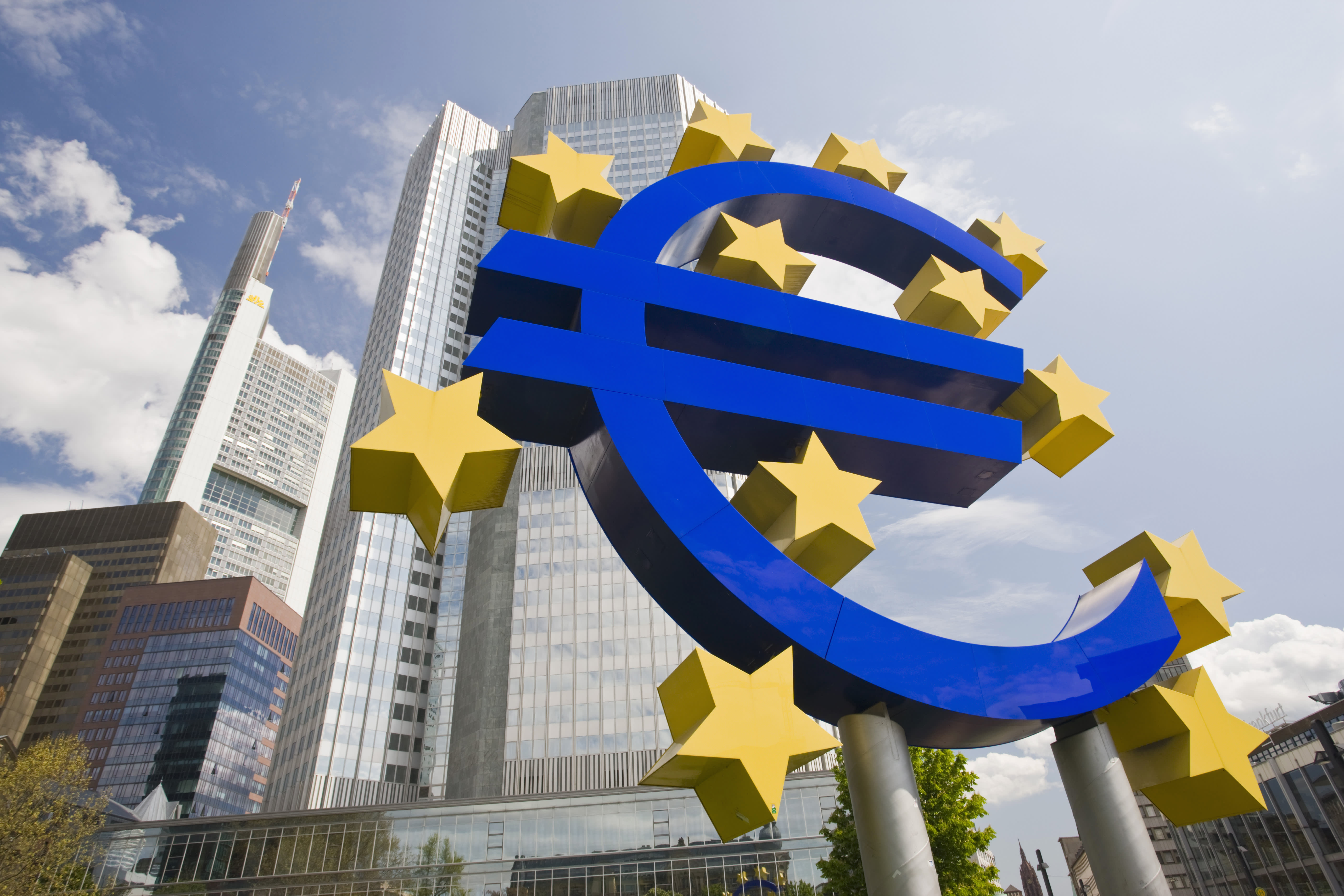
People wearing face masks walk in front of a big Euro sign in Frankfurt am Main, western Germany, as the European Central Bank (ECB) headquarter can be seen in the background on April, 24, 2020.
YANN SCHREIBER
European debt holders are cautiously awaiting a ruling from a German court, which could impact how the European Central Bank (ECB) faces the ongoing economic crisis.
Germany's constitutional court in the city of Karlsruhe will announce on Tuesday whether the ECB's public sector purchase program — which buys government debt in the euro zone and was initially introduced in 2015 — is legal under German law.
Analysts don't expect the court to rule the program illegal, but the decision could impose restrictions on what the ECB does.
"We need to watch the risk that the court could spell out conditions for the ECB's sovereign bond purchases that could make it more difficult for the bank to use this part of its monetary toolkit flexibly and efficiently," Holger Schmieding, chief economist at Berenberg, said in a note last week.
What's at stake?
The decision, back in 2015, to purchase government bonds, to keep borrowing costs relatively low across the euro area, came with certain conditions. Only countries with an investment-grade rating could feature in the program and the bond purchases were linked to the size of the 19 economies —just to name two of the restrictions.
The initiative, also known as quantitative easing or QE, ended in 2018 and was restarted in November, 2019.
The First Senate of the Federal Constitutional Court in Karlsruhe, southwestern Germany on November 5, 2019.
ULI DECK
However, the coronavirus pandemic has pushed the ECB to take a step further. It announced in March the Pandemic Emergency Purchase Programme (PEPP) — which will buy 750 billion euros ($819 billion) in euro zone government bonds this year. This latest package is in addition to the 20 billion euros that the ECB was already buying every month since November.
The difference, though, is that PEPP has fewer strings attached — and could therefore be even more vulnerable to court rulings.
For example, Greek debt, which doesn't have an investment-grade rating and is ineligible under QE, can be bought under the coronavirus package. This means that if the German court imposes restrictions on quantitative easing in the first place then these might also have to apply to the coronavirus package.
Berenberg's Schmieding said "we cannot rule out the possibility" that the German court tries to impose significant limits on ECB purchases in its ruling on the Public Sector Purchase Program (PSPP), referring to the program introduced in 2015 to buy government bonds.
"If so, we would likely get a new court case against the PEPP immediately — which could then take time to wind its way through the German and European courts," Schmieding added.
Furthermore, the coronavirus package or PEPP respects the size of the 19 economies, but it has been designed in a way that the ECB could buy more Italian or Spanish debt, than say Dutch debt, to keep costs lower for troubled economies. This is something that judges could also have issues with.
"The question of the legality of PEPP — with less PSPP-style limits… is already looming on the horizon," Carsten Nickel, deputy director of research at Teneo, said in note last week.
No comments:
Post a Comment